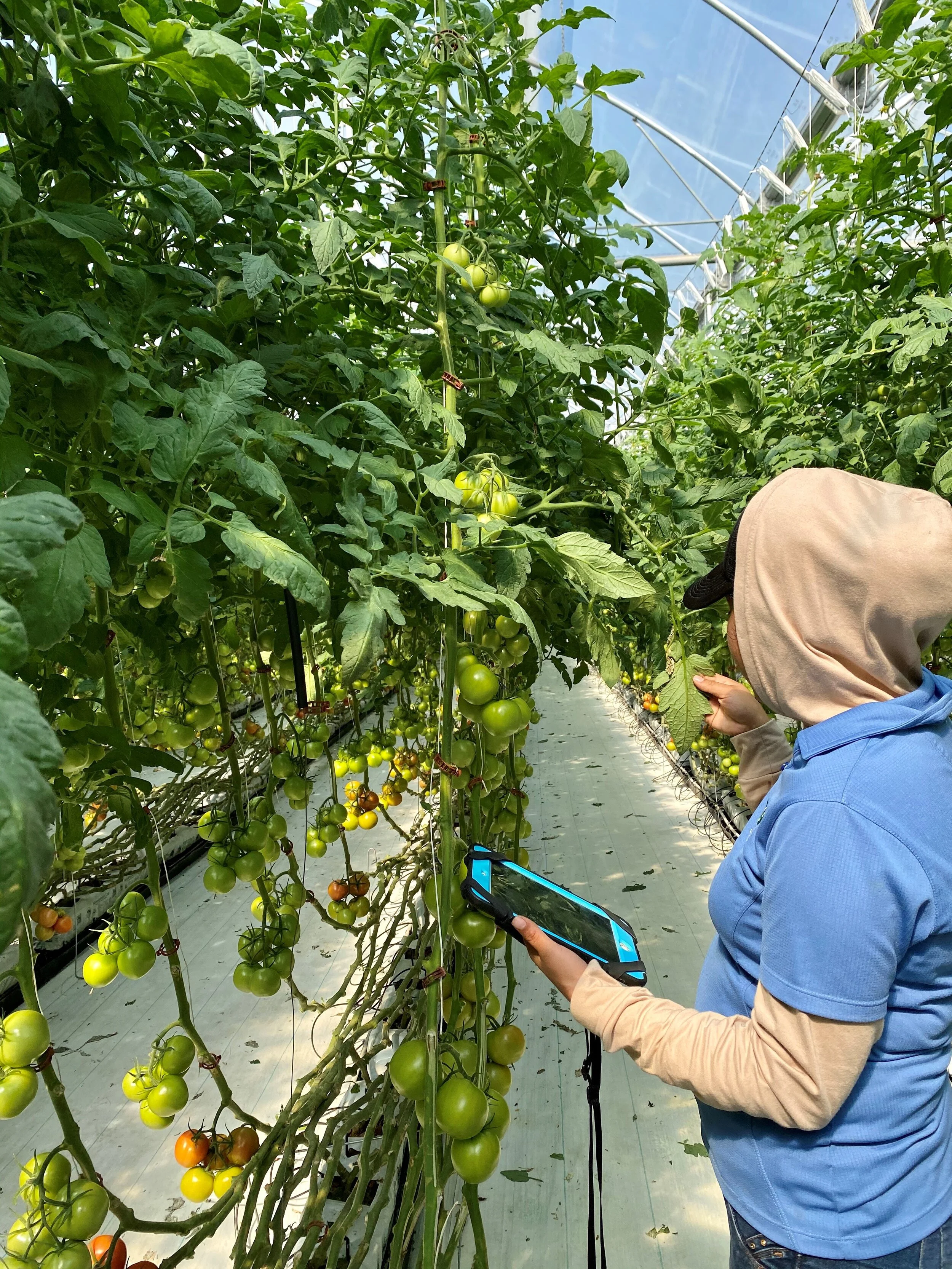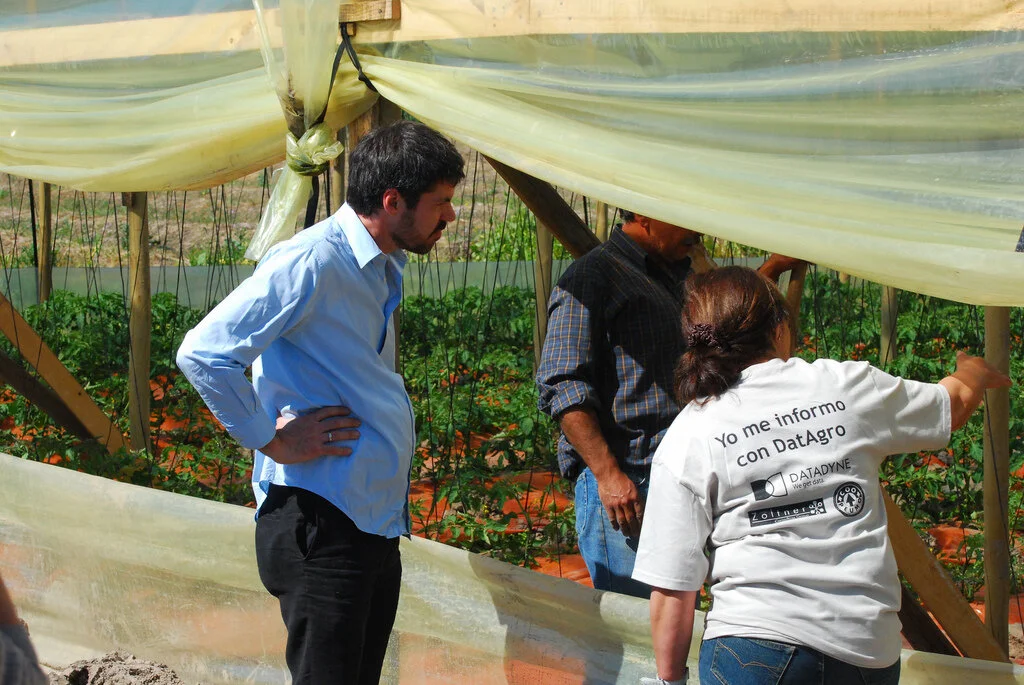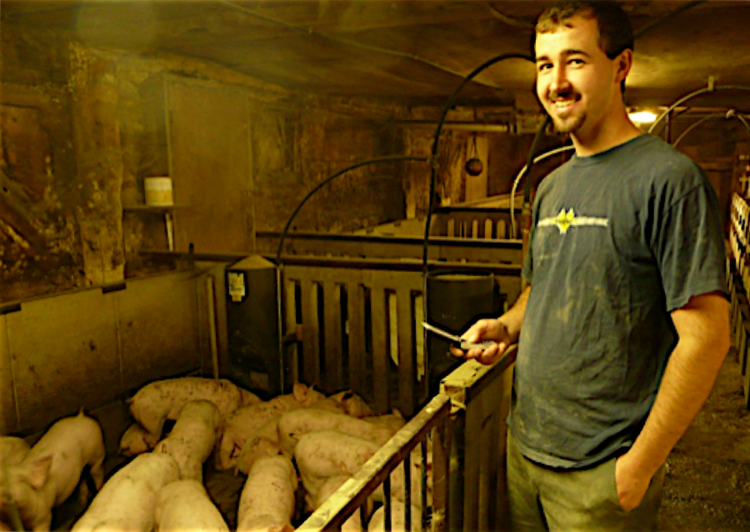The use of Magpi in the agriculture sector started over a decade ago, to track morbidity and mortality rates in swine raising operations in Canada and to provide access to essential information to small-scale crop farmers in Chile. Fast-forward to 2019 and family-owned Vista Produce is using Magpi to manage the data collection process at their hydroponic tomato growing operations in Mexico, where they focus on producing tomatoes in an environment that supports workers' aspirations.
“Vista Produce is striving to create a workplace culture that supports employees in gaining mobility and advancing their livelihoods. One way for us to support employees in building their careers is to connect them to leading edge technologies.”
-Dana Gulley, Vista’s Sustainability Strategy Consultant
Farming tomatoes in indoor facilities with no soil is an expensive, high skill activity in which the ability to monitor and track the amount of nutrients administered is critical. Vista Produce found that slow data collection via paper was just not cutting it — so they turned to Magpi.
“Many of our data collection processes were inefficient, which impacted how we managed our operations—costing us time and money. For our business, the ability to easily and reliably capture data in the greenhouses that then syncs to our online databases is an investment worth making.”
Vista had been using very basic electronic data entry by using Excel documents on old smartphones, which in some cases had cracked screens: hardly ideal when, for some data collection, over 159 cells needed to be filled. Typing and other mistakes were common.
Using Magpi for mobile data collection with tablets simplified this workflow and immediately began eliminating some of the most common errors. Vista Produce started by reproducing their paper monitoring forms for various insects, including white flies and trips, as mobile forms in the Magpi web app and pushing them to the Magpi mobile app. The forms, although basic in design and type of data captured — trap number and number of insects observed — made it much easier and accurate to collect data in the greenhouses. Since that simple beginning, Vista has now added more forms and gone on to connect Magpi with Excel using Zapier to automatically transfer data for visualization and analysis.
Vista’s business model—and its commitment to its employees—relies on efficiency in every aspect of the tomato growing environment, and Magpi has helped with that: Vista is able to monitor more effectively, with less work, in less time.
Mobile Data Collection Guide
How mobile data collection has become a viable and powerful option for many companies





